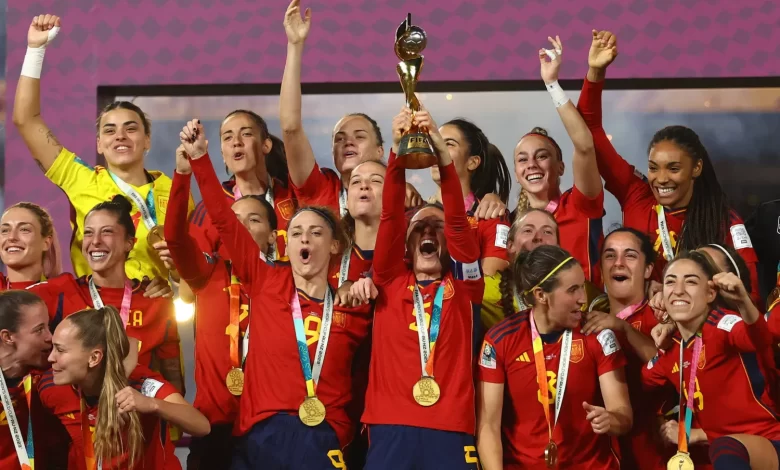Sport
“FIFA”: Nearly Two Billion People Engaged with Women’s World Cup

Two separate reports revealed that over two billion people worldwide engaged with the largest and most inclusive edition of the FIFA Women’s World Cup, breaking new ground in responsible, socially inclusive, and environmentally conscious event organization while upholding human rights.
According to FIFA’s official website, the tournament held in Australia and New Zealand set new records in ticket sales, viewership, and digital engagement. These achievements extended beyond the field, reflecting the growing development of women’s football through the dazzling performances and unforgettable moments created by debuting teams.
The Global Audience and Engagement Report for the FIFA Women’s World Cup Australia & New Zealand 2023, prepared by Nielsen, highlighted a significant increase in broadcast reach in Oceania, Africa, and the Middle East.
The tournament, the first to feature 32 teams, attracted nearly two million fans to stadiums. It showcased the rising standard of women’s football and inspired countless women and girls globally to participate in the world’s most popular sport.
Worldwide, the event averaged 14.12 million viewers across its 64 matches. The final, where Spain claimed their first title by defeating England 1–0 in Sydney, capped the tournament. Notably, Australia’s semifinal loss to England became the most-watched TV event in Australian history.
FIFA’s sustainability report highlighted the concerted efforts by FIFA, local organizing committees, and stakeholders to prioritize sustainability throughout the event. The report detailed the measures implemented to ensure accessibility for individuals with disabilities, minimize environmental impact, and uphold human rights.
FIFA Secretary-General Matthias Grafström remarked:
“As football’s governing body, we have a significant responsibility and unique opportunity to advance the game, harness its power, and uphold its integrity while making it accessible to all. Looking ahead to the next Women’s World Cup, sustainability will remain at the core of our planning.”
He added:
“By highlighting achievements such as ticketing accommodations for persons with disabilities, environmental initiatives, and human rights protections, we can evaluate progress and draw guidance for future events.”
The report also showcased how the logistical challenges of hosting such a unique event were addressed, ensuring the tournament’s success on and off the field through sustainable management practices.



